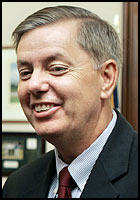"In a thousand years we'll all be dead, and all that will matter will be our record of truth and beauty"
>
Peter, Paul and Mary, singing Bob Dylan's "Blown' in the Wind" in 1966, pass the truth-and-beauty test with flying colors. Corny as it sounds, they really will go on singing forever.
by Ken
As we have both had frequent occasion to mention, Howie and I go back a long ways -- specifically, to the ninth grade, when as it happened we had an English teacher who i think it's fair to say changed both our lives.
His name was Mr. Fulmer (well, Chet Fulmer, but Mr. Fulmer to us), and already I think he would be cross with me for saying "I think" -- twice now -- when I'm not really thinking. (Well, I was pretty close to thinking the first time, and the second time was for, you know, comical effect.) He was tough about that, and rarely let it pass. Which might make him sound severe, though he wasn't really. He spoke in a beautiful, commanding baritone voice, and was warm and funny and tolerant, but tolerant only up to a point. He wasn't very tolerant of insensitivity or willful stupidity. I wonder what he would make of Glenn Beck.
The thing is, it mattered to him that we didn't use the word "think" carelessly, because it really mattered to him that we did think. It was news to all of us that we didn't. We all resisted at first, until we started to get a glimmer of what he was talking about.
It was the dawn of the '60s, and so perhaps not a surprising time to be exalting "truth and beauty." The clip of Peter, Paul and Mary singing "If I Had a Hammer" I posted the morning after Mary died dates from 1963.
But I assure you that, at least in the Brooklyn of that time, truth and beauty were not standard preoccupations. Howie had grown up in the area, while I had just moved from Milwaukee and before that Baltimore. Let the record show that truth and beauty hadn't been standard preoccupations in any of the places I'd lived before either.
It was crucial that truth and beauty were linked, and perhaps I should be referring to them jointly as truth-and-beauty. Truth by itself is a fine thing, but it has a tendency by itself to overwhelm; beauty by itself is a lovely thing but has more than a tendency to obscure and trivialize. However, leaven truth with beauty and temper beauty with truth, and they make a terrific team.
It's not always possible, of course. There are, alas, all too many truths under the sun that are simply too onerous to allow for leavening with beauty. There's no way to beautify the horror of Abu Ghraib, for example. I think Mr. Fulmer would have wanted us to understand that our souls need the consolation of beauty, but that an honest soul can't be consoled without coming to grips with the horror of the truth. When officials were confronted with the horror of Abu Ghraib, mostly they either looked the other way, or pretended they hadn't seen anything, or made up fairy stories (like pretending that the behavior on display was an aberration, which it clearly wasn't -- though it would still have been pretty horrifying if it had been). Of course nobody accused people like George Bush and Dick Cheney and Donald Rumsfeld of having clean souls. Those are souls that must be built up of layer upon layer of scar tissue.
I was touched by the comment our friend Balakirev added to my "farewell to Mary" post: "Damn. You know, I kind of hoped they'd go on living and singing forever." I sensibly resisted the temptation with some cheeseball affirmation that they will indeed go on singing forever, because I understood full well what he meant.
And yet it's true. I watched the 1963 clip of "If I Had a Hammer" a bunch of times, and also the reunion-concert clip of "Puff, the Magic Dragon" I posted on New Year's Eve. Each time I teared up at the final stanza of "If I Had a Hammer," with its formidable wielding of "the hammer of justice" and "the bell of freedom" and "the song about love between my brothers and my sisters," a combination worthy of Mr. Fulmer's truth-and-beauty. I was in tears most of the way through "Puff," a haunting song that in its gentle, beautiful way asks the listener to reflect on the complexity of the concept of youthful innocence.
In the late-ish performance of "Puff" preserved in our clip, Peter -- the song's co-writer with Lenny Lipton -- manages to expand the opening stanza into an extended riff on the widespread assumption that the song contained hidden drug references, a subject that apparently still bothers him, and I sympathize. Wouldn't you think there's quite enough content in the song for adults as well as children to deal with without going looking for extraneous nonsense?
But then, probably neither Peter nor Lenny imagined they would one day hear "Puff" transformed into "Puff, the Magic N----r," to the juvenile-delinquent adolescent delight of the racist core of Today's Republican Party, which bubbled to the surface last year (as I wrote about in that New Year's Eve post). Now it appears they hardly bother to conceal it, and among Democrats only former President Jimmy Carter seems to have the sense and courage to object on the record.
Still, if you go back to the real "Puff," its power and beauty, and its challenge to the imaginations of children and adults, are still all there. I have a feeling they'll still be there in a thousand years.
#
Labels: Abu Ghraib, beauty, Fulmer (Mr.), Peter Paul and Mary, truth








